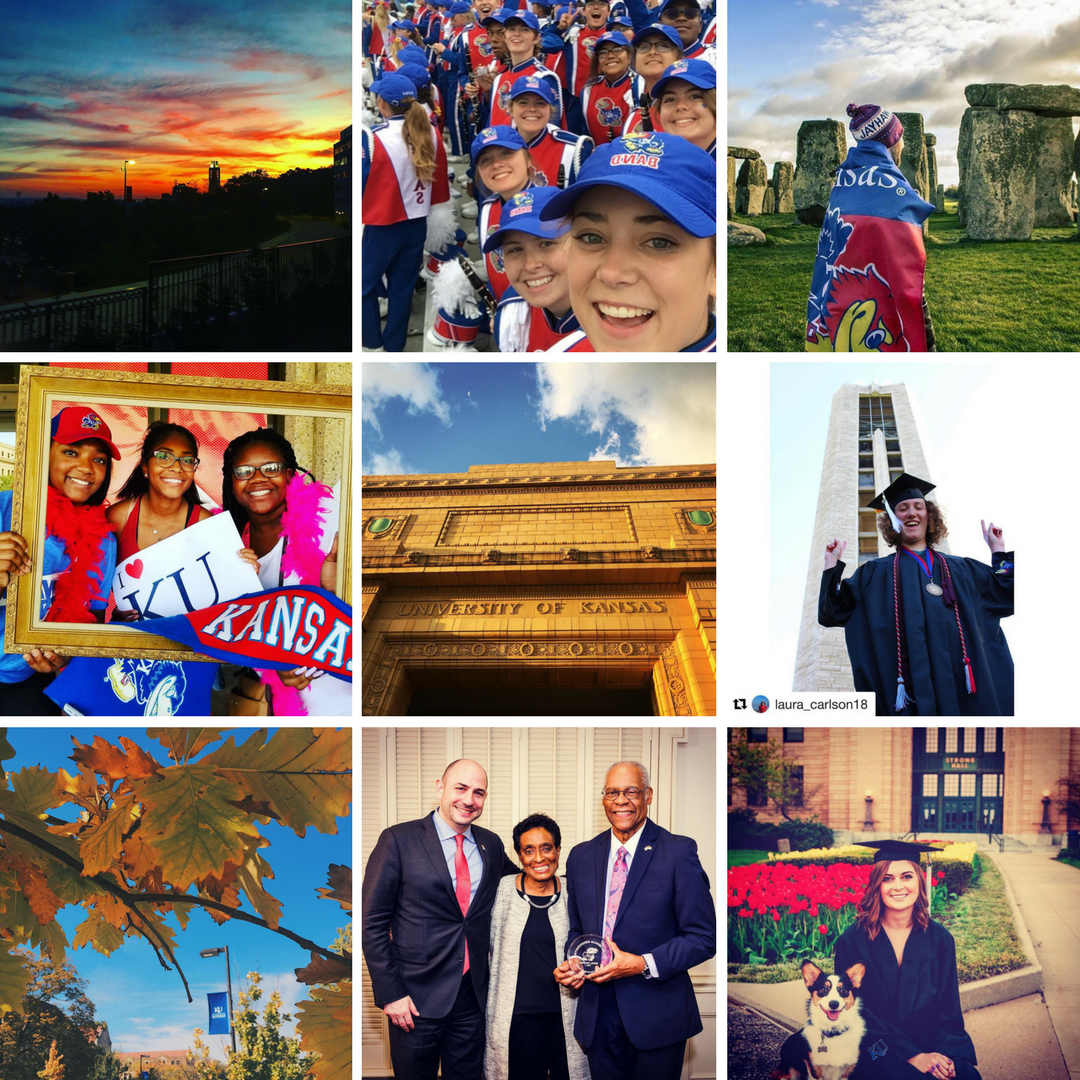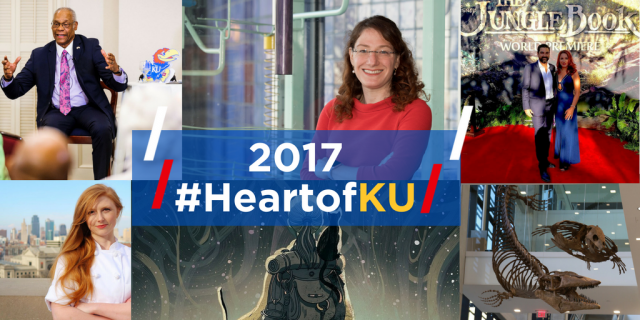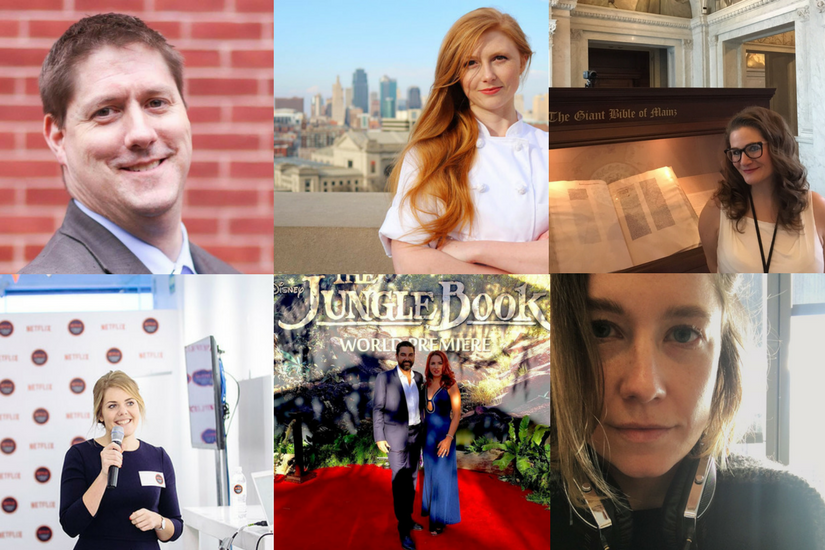The College is the heart of KU because it’s home to creators, innovators and thinkers who turn up every day compelled to make the world better for everyone. They question the status quo, experiment with new ideas and products, and propose solutions and new ways of thinking that address the challenges we all face. Looking back, it’s amazing to see what our students, professors and alumni have accomplished in the past year. They made ground-breaking discoveries, received national and international recognition for their work and made lasting impact in business, technologies, the arts, entertainment and education. Here are just a few highlights from 2017.
Beating superbugs with innovation, NIH recognizes KU professor’s antibiotics research with $2.3M award
A personal experience compelled KU bioscientist Joanna Slusky to focus her research on one of the world’s most pressing public health questions: how to combat drug-resistant superbugs and re-establish the efficacy of antibiotics. Professor Slusky’s solution to the problem is a protein that will resensistize bacteria to common antibiotics, an invention that could have a global effect on the battle against disease. Slusky’s research was recognized with a Moore Inventor Fellowship, a three-year grant worth more than $800,000, in 2016, and a $2.3 million New Innovator Award from the National Institutes of Health (NIH) in October 2017. Read more about Joanna Slusky’s story in this KU Alumni Association feature.
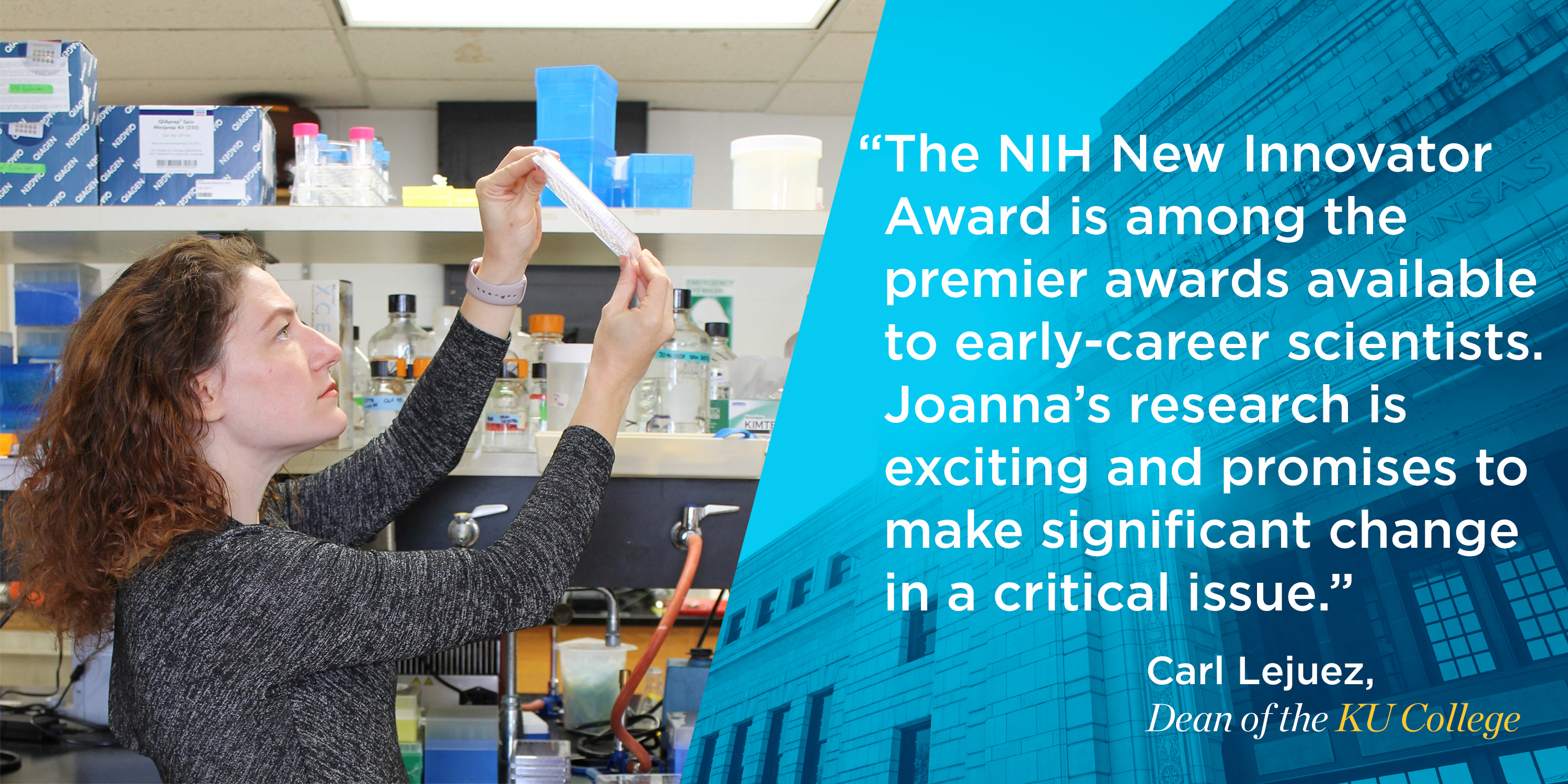
When fossils attack: Explore KU’s newest exhibit
KU’s new Earth, Energy and Environment Center (EEEC) came to life this fall with the addition of two fossils hanging from Slawson Hall’s atrium: a mosasaur chasing an 84-million-year-old sea turtle. In a nod to our history and the study of geology, these specimens represent a time when the Kansas prairie was a vast inland sea, and when the Cretaceous-era reptiles roamed and hunted. The mosasaur is the state fossil of Kansas. You may recognize this particular one because it is a cast of a specimen that now resides in KU’s Natural History Museum. Measuring 45 feet in length, it was discovered in 1911 in Logan County, Kansas, and is believed to be the largest complete mosasaur fossil in existence.
Sea turtles were likely prey animals of mosasaurs in the Cretaceous seas of Kansas. The fossil specimen now on display was collected near Quinter, Kansas, by KU alumnus and Triebold Paleontology curator Anthony Maltese. It shows nearly 100 small indentations that have been interpreted as bite marks from a mosasaur that was similar in size to the fossil hanging in Slawson Hall. The bite marks show no evidence of healing, indicating the mosasaur attack was fatal.
The Earth, Energy & Environment Center (EEEC) sits next to Lindley Hall and will open for classes in spring 2018. The two buildings of the EEEC—Ritchie Hall and Slawson Hall— will feature bridges to Lindley Hall and Learned Hall. The multidisciplinary center is a collaboration between the College of Liberal Arts & Sciences and the School of Engineering. It will bring together faculty, students and researchers from geology and engineering to tackle energy and environmental research.
Rewriting classics with feminist twist wins Kij Johnson top writing award
Even though she had already won the three most prestigious awards a science fiction/fantasy author can win, Assistant Professor of English Kij Johnson was still thrilled to win the 2017 World Fantasy Award for best long fiction for her 2016 novella, “The Dream-Quest of Vellitt Boe” (Tor.com). “Vellitt Boe,” with its middle-aged female protagonist, is a feminist riff on H.P. Lovecraft’s novella “The Dream-Quest of Unknown Kadath,” published posthumously in 1943. It struck a deep chord with readers.
Johnson is making a career — or at least an epoch — out of updating classic novels with a feminist twist. “I’ve been doing a lot of thinking about classics that excluded people,” Johnson said. “It got me to thinking about what books mattered to me when I was young and what accommodations I had to do in order to enjoy them. So, for instance, in ‘Lord of the Rings’ there were only three women in it. They were an elf princess, and I knew I wasn’t one of those, and a half-elf princess, and I knew I wasn’t one of those, and a human girl who was a princess, which I knew I wasn’t, but whose primary motivation for all of her actions was that she had a crush on Aragorn. And that was really disappointing when I was 10 years old, because I didn’t want to have crushes on anybody. So I would imagine that Merry, who is one of the hobbits who goes on the quest, was a girl, because the name Merry was pretty close to Mary, and Merry didn’t have to be a boy to have adventure.” We’re excited to read her latest, “The River Bank,” (Small Beer Press) a sequel to Kenneth Grahame’s 1908 “The Wind in the Willows” with two female protagonists.
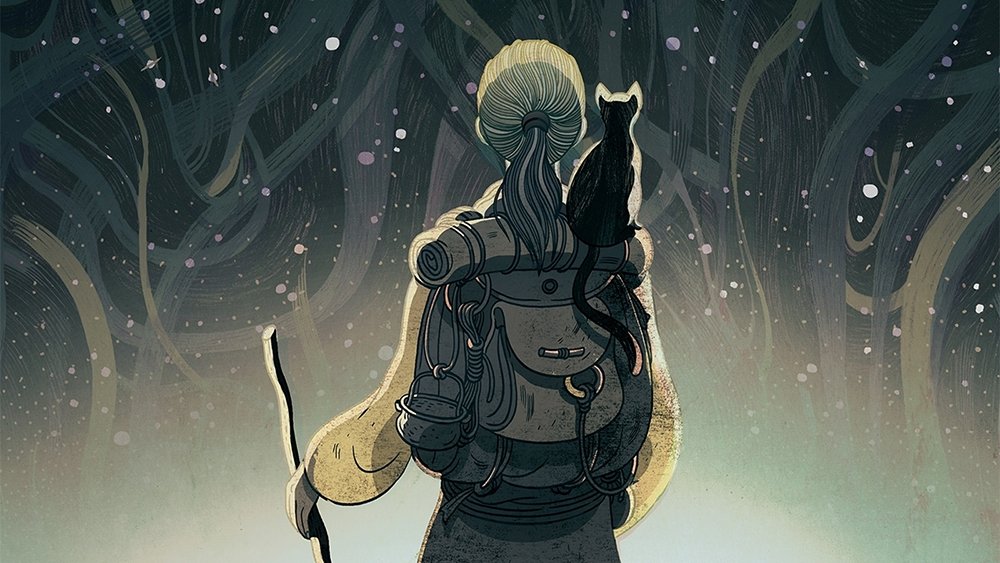
New $20M NSF award will fund collaborative research on the role of microorganisms in plants, water and soil
The University of Kansas will partner with four other Kansas universities on a new project funded by $20 million from the National Science Foundation to gain a better understanding of how tiny microorganisms, collectively known as microbiomes, influence environmental changes and the resulting economic implications. Kristin Bowman-James, a KU distinguished professor of chemistry who is serving as the principal investigator of the project, said: “This project will pull scientists together from different disciplines and different universities to work together on an important research area,” Bowman-James said. “Microorganisms play an important role in a wide variety of areas that affect our lives, which ultimately can impact human health and the health of our environment.” Studying these tiny living things can be critical to understanding several key issues for the state, including agricultural sustainability, water quality, greenhouse gases, plant productivity and soil fertility, Bowman-James said. James Bever, a KU Foundation Professor of ecology and evolutionary biology and a senior scientist at the Kansas Biological Survey, will help coordinate a portion of the work.
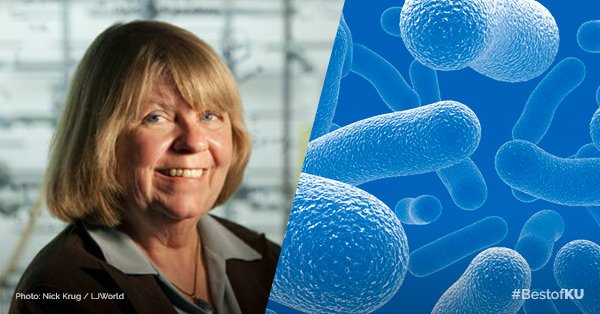
Flint water crisis led to lower fertility rates, higher fetal death rates, researchers find
Flint’s lead-contaminated water crisis caused fewer babies being born there — through reduced fertility rates and higher fetal death rates — compared with other Michigan cities during that time, according to a working paper that includes a University of Kansas researcher. “Having children in America is expensive and resource-intensive, and we want people to have the number of children they want when they want to have them. We, as Americans, are very much about individual people getting to make the choices that are the best for their families, and this is one of the most fundamental ones,” said David Slusky, assistant professor of economics.
The implications of the Flint environmental crisis provide wide-ranging lessons for cities and states, Slusky said. Lead poisoning is still a concern in most communities, especially in the use of older lead pipes for infrastructure or older homes that might have lead paint. Flint also provides a lesson in the role of public health and environmental oversight. Much of the work uncovering the dangerous levels of contamination in Flint came from private engineering and health professionals during a time when city leaders said the water was fine, Sluksy said. This could be an important lesson concerning government funding of agencies such as the Environmental Protection Agency and other federal and state bodies responsible for environmental inspections and oversight. “In the future we would like to have a government that is more responsive and more active in ensuring that the water that comes out of people’s taps is safe,” Slusky said.
Three KU professors named fellows of the American Association for the Advancement of Science
Three University of Kansas professors have been named as fellows of the American Association for the Advancement of Science (AAAS).
This year’s honorees:
- Susan Lunte, Ralph N. Adams Distinguished Professor of Chemistry & Pharmaceutical Chemistry
- A. Townsend Peterson, University Distinguished Professor of Ecology & Evolutionary Biology and senior curator at the KU Biodiversity Institute
- Franklin (Feng) Tao, Miller Associate Professor of Chemical & Petroleum Engineering and Chemistry.
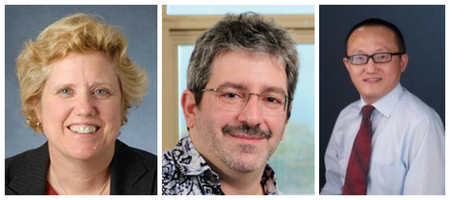
They are among 396 new fellows to receive this honor this year in recognition of their scientifically or socially distinguished efforts to advance science or its applications.
“It is always gratifying to have our faculty members receive this recognition from AAAS, one of our country’s most distinguished scientific organizations,” said Chancellor Douglas A. Girod. “Designation as fellows is a well-deserved honor for all of these scientists, and it reflects well on the research efforts of our entire university. I congratulate them for their outstanding contributions to their respective fields.”
Author Coins Term ‘Adapturgy’ For Burgeoning Field
With interest in dramaturgy growing nearly as fast as that in the adaptation of literature into different artistic genres, the time is ripe, according to Assistant Professor of Theatre Jane Barnette, for her new book, “Adapturgy: The Dramaturg’s Art and Theatrical Adaptation” (Southern Illinois University Press, 2018). Barnette delves into both the theory and the practice of moving from page to stage from the dramaturg’s perspective. “The central question in dramaturgy is why this play now?” Barnette said. “Why are we performing this particular play in 2017? So I have transformed that question in the book into ‘why this source as theatre now?’ You should always know why and what it’s saying to your current worldview. But if you are doing an adaptation, you need to understand why you are doing this source as theatre now. Because you could turn it into a film, a ballet or any other medium, but the adapter has chosen theatre. So part of my job is to figure out what does theatre allow us to do with this source that just reading it doesn’t allow?”
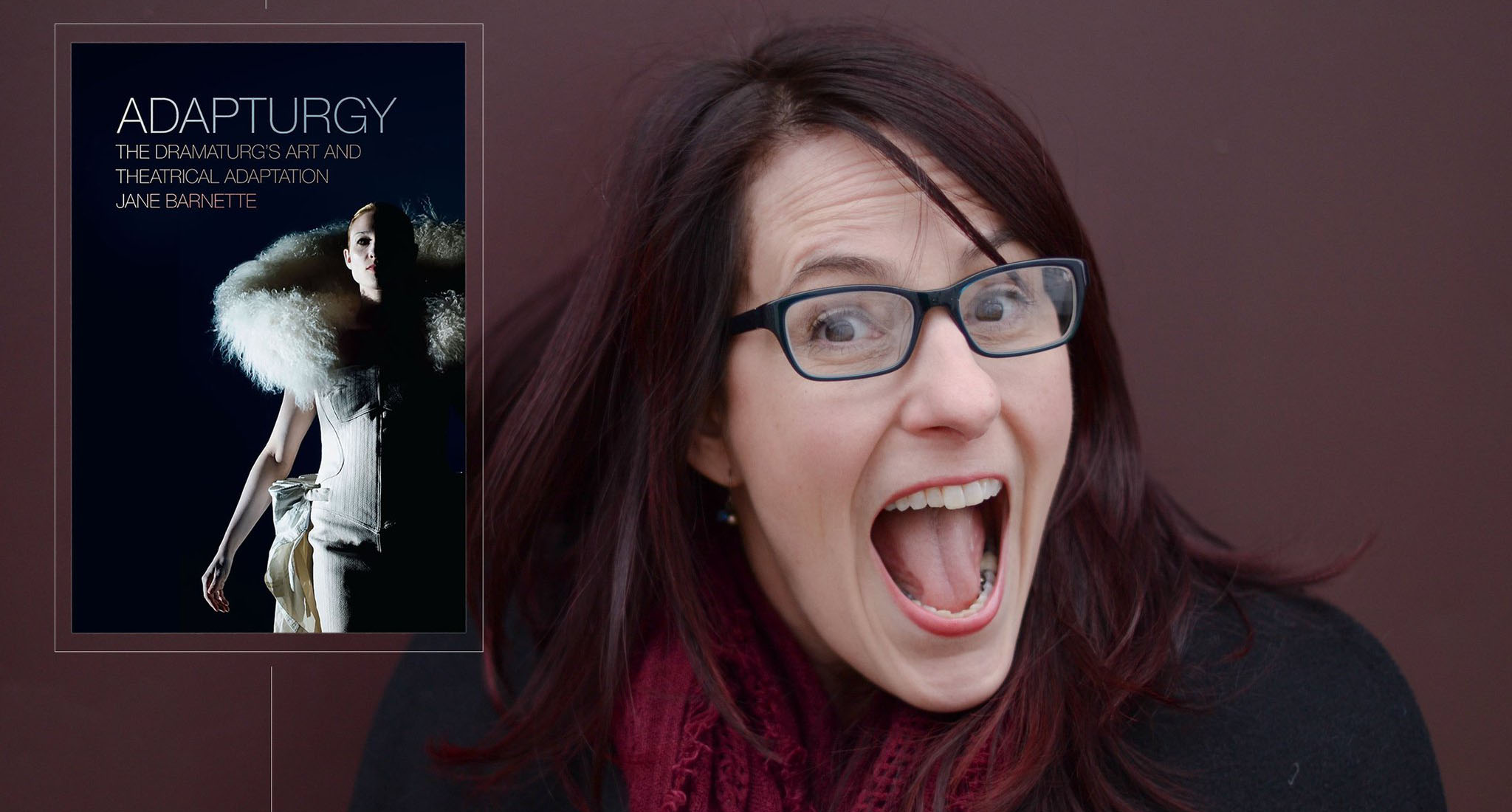
Hawks to Watch: Young alumni making their mark
What connects the Oscar-winning “The Jungle Book” movie and the California High Speed Railway? What about artistic pastries at the Nelson-Atkins Museum of Art and Netflix? Or online music mag Pitchfork and some of the oldest rarest books in America? The answer is KU College graduates, our latest class of Hawks to Watch. These recent alums are poised for greatness, inspiring their colleagues and excelling in their professions. Their successes in such a wide range of industries are testament to the diverse ways the liberal arts and sciences prepare students for almost any career.
KU Debate ranked number one in the country
The Kansas debate team of seniors William Katz, of Topeka, and Quaram Robinson, Round Rock, Texas, ended the fall semester with a first-place finish at the prestigious Franklin R. Shirley Classic Debate Tournament hosted by Wake Forest University earlier this month. More than 130 teams from across the country competed. The pair defeated Harvard University in the semifinals and Emory University in the championship debate. Katz and Robinson finished the first semester as the top-ranked individual team in the country, and the KU squad as a whole is ranked No. 1 in the country in the NDT Varsity point rankings.
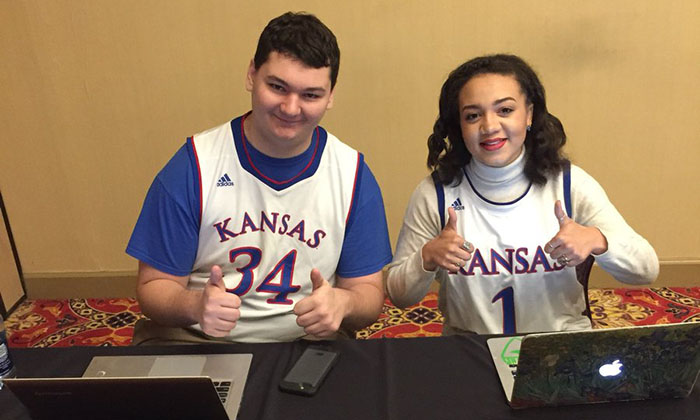
Federal grant to help preserve endangered Kiowa language
As an amateur linguist growing up among the Kiowa people a century ago, Parker McKenzie devised a method of writing his native language using English letters. Now his great-grandson, University of Kansas Assistant Professor of Linguistics Andrew McKenzie, is completing a book that will go further than ever before in outlining the grammar of Kiowa. Andrew McKenzie’s work is urgent, he said, because most of the remaining fluent Kiowa speakers (a few dozen) are quite elderly. In fact, several of those he has interviewed have subsequently passed away. “It’s an urgent task to document the language while it’s still preservable,” Andrew McKenzie said recently. “Teachers of the language will need to know this going into the future.” Andrew McKenzie recently won a three-year grant from the Documenting Endangered Languages program of the National Science Foundation and National Endowment for the Humanities to fill in a gap on Kiowa.
Distinguished Alumni: Ambassador Delano Lewis, Diplomat and Executive
The list of careers Delano Lewis has held is lengthy and diverse. After graduating from KU in 1960 with majors in political science and history and a law degree soon after, he embarked on a career including roles with the Justice Department and the Equal Employment Opportunity Commission, the Peace Corps in Nigeria and Uganda, as U.S. Ambassador to South Africa, CEO of NPR and more than 20 years in telecommunications with C & P Telco in D.C., culminating as president of Bell Atlantic/DC, which is now Verizon.
Alongside his professional career, Lewis has made contributions as a public servant and philanthropist in the Washington, D.C. community, and on a federal level. Recently, he’s focused his energy on sharing his experiences with others, compiling his life lessons in his memoir, “It All Begins with Self: How to Discover Your Passion, Connect with People, and Succeed in Life.”
In recognition of his diverse and impactful career, the KU College of Liberal Arts & Sciences honored Lewis with our 2017 Distinguished Alumni Award. We sat down with him to learn more about his approach to leadership and learning.

KU geologists help spearhead development of app
Thanks to the work of geologists at the University of Kansas, all you need starting today to create detailed geologic maps of any region on Earth is a smartphone or a tablet and a desire to understand. Led by James Douglas Walker, the Union Pacific Resources Distinguished Professor of Geology at KU, the group helped plan and conceptualize a new geologic mapping app called the StraboSpot Data System. KU also completed all of the programming and technical development on Strabo. The KU Geology Department tested the app over the last two years in its GEOL 560 and 561 field courses in Colorado. “Strabo is an app tailored to field geologists and field students,” Walker said. “Behind the scenes, Strabo works more like Facebook than Excel, like other map-making systems such as ArcGIS do. The technology behind Strabo is completely different than the technology we’ve used before.”
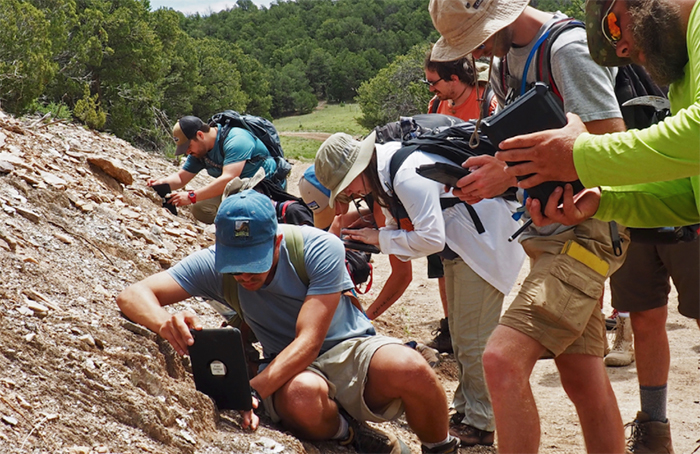
A Year in Instagram Pics
This year, KU College Jayhawks shared with us their special moments gazing at our beautiful campus, supporting the football team with music, returning to campus to celebrate achievements, exploring the world, and capping off years of hard work with graduation from the KU College.
